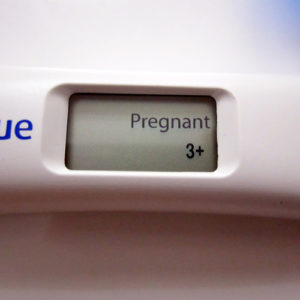You will be aware that allow yourself some sunray exposure may do more than giving you a tan? Well, new research says soaking up some sun may increase fertility in the women above the age of 30. Isn’t that wild?
In the study published by Science Direct, researchers established a link between moderate sun exposure and better ovarian reserve. Now, before you rush to start soaking yourself in the sun, let us dig a bit deeper into this issue.
Unraveling the Sun-Fertility Connection
The Israeli study, running for four years, tried to assess the effect of solar radiation on a hormone called anti-Müllerian hormone, abbreviated as AMH. Now, AMH is not just any old hormone you hear about; it’s a pretty important one in assessing fertility status in women.
Since AMH levels correlate with ovarian reserve, and both decrease with age, fertility takes a hit. Now, here comes the interesting part: They found that for women from 30 to 40 years old, their AMH levels actually rose during the moderate sun exposure seasons of spring and autumn. Talk about a ray of hope!
Age Matters: The 30+ Club
Now, one wonders if this fertility-enhancing effect from the sun works in everyone’s case. The answer is not really. The study showed that in women below the age of 30, this AMH raise from exposure to the sun did not follow.
It seems Mother Nature has a soft spot for the 30+ crowd. In fact, the greatest benefit was found in women in their late 30s. They simply had higher AMH levels during the moderate sun exposure months of the year versus the gloomy winter days.
Balancing Act: The Goldilocks Zone of Sun Exposure
Right before you start planning your beach trip, here’s a reminder: everything in moderation. In the study, it was determined that high and low measures of UV exposure had contrary effects on levels of AMH. It is all about the middle point of exposition to the sun—not too little, not too much, just the way it ought to be.
Beyond the Sun: Other Fertility Factors
Though exciting in regards to this sunlight revelation, remember that fertility is rather a complicated puzzle with several pieces. Innumerable factors weigh in on fertility, which includes drugs, stress, female factors like endometriosis or hormonal imbalances, and male factors such as low sperm counts.
So while catching some rays might help, it’s definitely not a silver bullet to fertility issues.
The Age Factor: Ticking Biological Clocks
Let’s face it—we’re not getting any younger. As more women put off having their babies into their 30s and 40s, age becomes a significant factor in fertility.
After the age of 35, according to medical definition, a woman is considered of advanced maternal age. This in no way does it imply any change in treatment but is rather terminology showing change in status of fertility with age.
Shining Light on the Limitations of the Study
The study’s authors also point out a few limitations: the study was held in Israel, so the results might not generalise elsewhere; skin tone, cultural differences, and lifestyle choices were not completely accounted for.
A Bright Future for Fertility Research?
Although this study kind of debunks the fertility puzzle, there is still a lot more to learn. While some sun might be good for fertility, the possible benefits have to weigh against risks associated with skin damage and cancer.
Who knows what other surprising factors may be influencing fertility as research continues? One thing’s for sure—the future of fertility research looks bright!
Next time you step outdoors, remember—starting from now, you may actually be doing much more than the apparent: taking in the weather. You could well be making a little boost to your fertility!
Photo credit; “Sunshine and Fertility” by Anthony Cunningham for Zoom Baby
Zoom Baby is a leading supplier of Pregnancy Tests and Ovulation Test Kits





